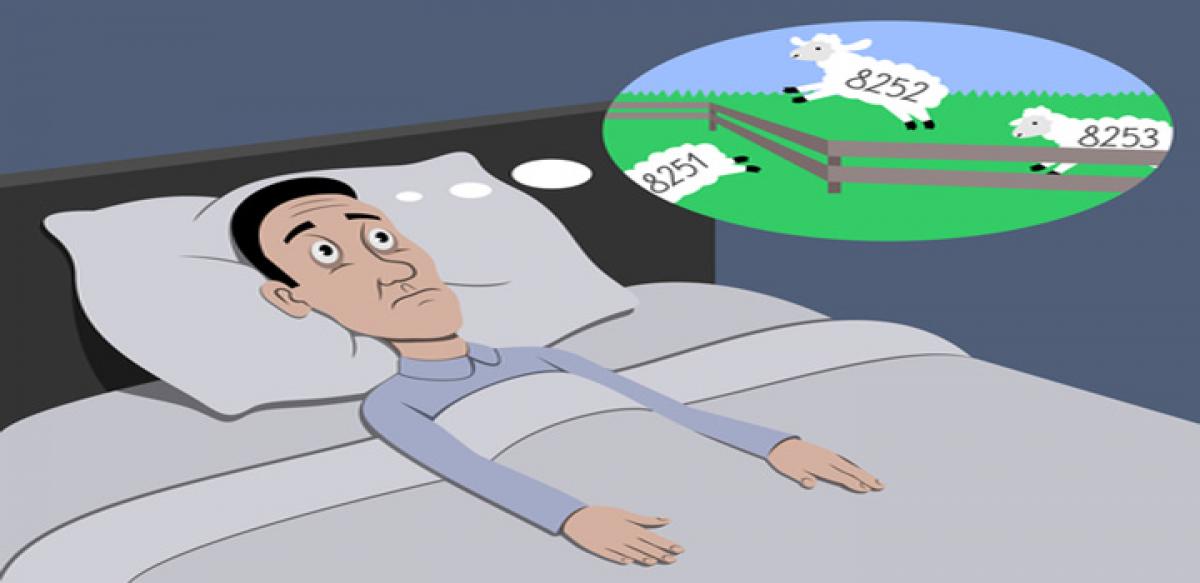Live
- 6.79L homes to receive water under Amrut-II
- Cops prohibit assembly of 5 or more near Group-II exam centres
- Avanthi, Grandhi quit YSRCP, lash out at Jagan
- Dharani portal services paused till Dec 16
- Komuravelli Mallanna Swamy Jatara from Jan 19
- Study tour for TG legislators soon
- State cabinet expansion by Dec 31: Ponguleti
- 2 Narayanites bag gold medals in IJSO-2024
- Jail superintendent suspended in ailing farmer handcuff incident
- CM Revanth orders probe into farmer’s handcuff incident
Just In

Offering a target for developing new therapies to address sleep disorders, researchers have identified a gene that when overactivated causes severe insomnia. Expression of this gene called neuromedin U (Nmu), also seems to serve as nature\'s stimulant - fish lacking the gene takes longer to wake up in the morning and are less active during the day, the study said.
Offering a target for developing new therapies to address sleep disorders, researchers have identified a gene that when overactivated causes severe insomnia. Expression of this gene called neuromedin U (Nmu), also seems to serve as nature's stimulant - fish lacking the gene takes longer to wake up in the morning and are less active during the day, the study said.
"Our study suggests that Nmu could be a good gene to look into," said one of the researchers David Prober, assistant professor of biology at California Institute of Technology in the US. The researchers conducted the research in zebrafish. Like humans, zebrafish normally start to wake up at the end of the night and then become much more active when the lights turn on.
"The fish without Nmu are defective in this anticipation of dawn," Prober said. "So it seems that this gene is particularly important for the transition from nighttime sleep to daytime wakefulness," Prober noted. To explore how Nmu promotes wakefulness, the researchers first investigated the gene's role in a stress response pathway known as the hypothalamic-pituitary-adrenal (HPA) axis.
Investigation revealed that the the gene does not act through the HPA axis. The researchers then went back to the drawing board and asked which neurons in the brain became activated as a result of Nmu overexpression.
Using a technique that labels activated neurons, they saw strong activation of a handful of cells that express a gene called corticotrophin-releasing hormone (CRH) in the brainstem. The researchers also found that a low dose of a drug that blocks CRH signaling completely blocked the wake-promoting effect of Nmu overexpression in zebrafish, whereas a higher dose also reduced wakefulness in normal fish.

© 2024 Hyderabad Media House Limited/The Hans India. All rights reserved. Powered by hocalwire.com







